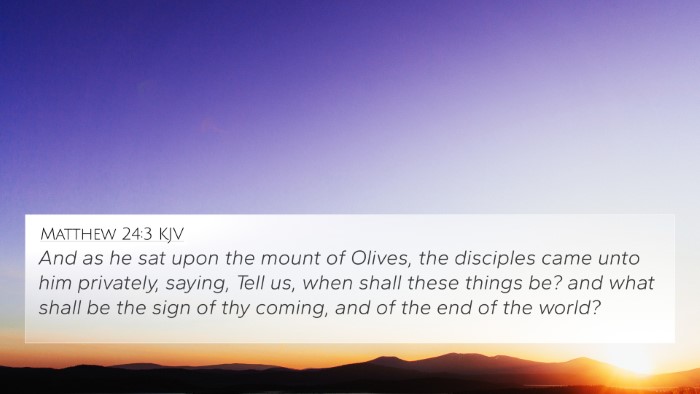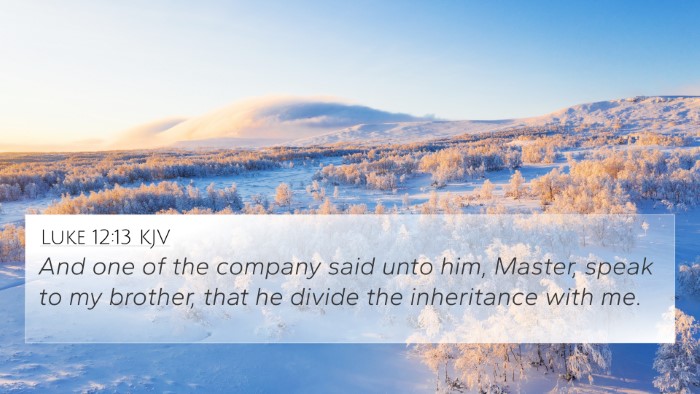Bible Verse: Luke 13:23
In Luke 13:23, the question is posed, "Lord, are there few that be saved?" This inquiry leads to a profound exploration of salvation and the challenges surrounding it. To comprehend this verse fully, we can draw upon insights from esteemed public domain commentaries, such as those by Matthew Henry, Albert Barnes, and Adam Clarke.
Meaning and Interpretation
This verse reflects a central concern in the teachings of Jesus regarding the nature of salvation. The phrasing suggests a broader contemplation on the exclusivity of salvation and the path to eternal life.
Insights from Commentaries
-
Matthew Henry: Henry explains that the question reflects human curiosity about the state of salvation and the fate of souls. He emphasizes Jesus' response that the door to salvation is narrow, symbolizing that many will strive to enter but few will succeed. This highlights the urgency and importance of sincere faith and obedience.
-
Albert Barnes: Barnes elaborates on Jesus’ responses, indicating that salvation is not guaranteed merely by being part of the covenant community. He points out that many who assume they will enter the Kingdom of Heaven will be denied due to complacency. The emphasis is on active discipleship and genuine relationship with Christ.
-
Adam Clarke: Clarke interprets this verse within the context of the broader mission of Christ. He notes that the question about the number of saved souls illustrates a common fear of exclusion. Clarke reinforces the notion that while many hear the call to follow, few truly respond and persevere in faith.
Cross-References and Thematic Connections
To deepen our understanding of Luke 13:23, we can explore several cross-referenced verses that relate closely:
- Matthew 7:13-14: "Enter by the narrow gate; for wide is the gate and broad is the way that leads to destruction." This elucidates the concept of a narrow path to salvation.
- John 10:9: "I am the door. If anyone enters through me, he will be saved." This reinforces the exclusivity of Christ as the only way to salvation.
- Matthew 22:14: "For many are called, but few are chosen." This continues the theme of the few who are ultimately saved.
- Romans 2:6-8: "He will repay each one according to his works." This verse highlights the importance of faith expressed through actions.
- 2 Peter 1:10-11: "Therefore, brothers, be all the more diligent to confirm your calling and election." This encourages believers to strive towards their salvation.
- Acts 14:22: "We must through many tribulations enter the kingdom of God." This verse echoes the challenges faced on the path to salvation.
- Hebrews 3:12: "Take heed, brothers, lest there be in any of you an evil heart of unbelief." This serves as a warning against falling away from faith.
- Philippians 2:12: "Work out your own salvation with fear and trembling." This emphasizes personal responsibility in salvation.
- Revelation 3:20: "Behold, I stand at the door and knock." This portrays the invitation to salvation and the need for an active response.
- Matthew 25:31-46: The parable of the sheep and the goats illustrates the final judgment based on one's response to Christ and others.
Understanding the Importance of Cross-Referencing
Engaging with cross-references enhances our understanding of biblical texts, allowing for a comprehensive perspective. Here are some ways to incorporate cross-referencing in Bible study:
-
Identify thematic connections: Seek verses that tackle similar themes, like salvation, judgment, and discipleship.
-
Use a Bible concordance: Find verses that correspond to specific words or themes across scriptures.
-
Employ a cross-reference Bible study guide: Reference guides can provide structured approaches to connecting verses within and across books.
-
Utilize tools for Bible cross-referencing: Many digital and print resources categorize verses for easy navigation.
-
Analyze Old and New Testament connections: Recognize how Old Testament prophecies and themes are fulfilled in the New Testament.
Conclusion
Luke 13:23 serves as a compelling reminder about the nature of salvation and the importance of a genuine relationship with Christ. Through the insights of noted commentaries and the rich tapestry of cross-references, we can better grasp the depth of biblical teachings on salvation. The interconnectedness of scripture illuminates the path for believers, prompting us to pursue faith actively and diligently while fostering an understanding of God's intention for humanity.












